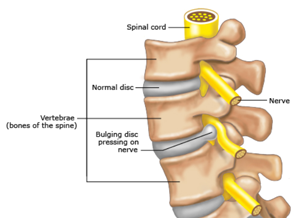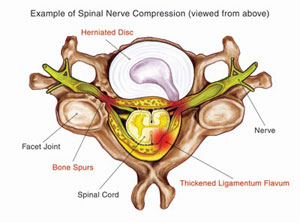Sciatica Explained!
1st Globus Robotic Spine Surgery in Dallas!

What is Sciatica?
Sciatica is a painful condition caused by the irritation of the sciatic nerve. Most cases will resolve itself within a few weeks or months and require only symptomatic treatment.
Causes of Sciatica
It is important to know that sciatica is a symptom, not a medical diagnosis. Some medical conditions that can cause sciatica include: herniated discs, degenerative disc disease, spinal stenosis, spondylolisthesis, & degenerative disc disease.
Symptoms of Sciatica
The most common symptom of sciatica is an irritating sensation down the leg. Leg pain can vary from mild to debilitating depending on the degree of pressure exerted on the sciatic nerve. It includes:
- Numbness, burning, or tingling sensation in the leg or foot (60-70% patients)
- Pain in the buttock, behind the thigh and down the leg (35% patients)
- Weakness of the leg or foot
- Pain that increases with coughing, sneezing, straining, or bending

Diagnosis of Sciatica
Sciatica is diagnosed by reviewing your medical history, performing a physical examination. Diagnostic procedures such as X-ray and MRI may be ordered.
When to Seek a Doctor
- New back pain that goes down into the buttock or leg.
- Back or leg pain along with problems controlling your bowels or bladder.
- A problem called "foot drop," which is when you cannot seem to hold your foot up while walking. Also pay attention to worsening thigh weakness!
Treatment of Sciatica
- Sciatica can be treated with conservative approaches such as abdominal and lower back strengthening exercises, ice or hot packs, chiropractor manipulation, anti-inflammatories, Medrol steroid dosepack, and epidural steroid injections.
- A minimally invasive surgery may be recommended to treat the underlying condition causing sciatica such as a herniated disc, spinal stenosis, spinal instability, and degenerative disc disease.
If Surgery is Suggested for the Disc Degeneration, ask:
- How likely is it that surgery will help my symptoms? How quickly will I recover from surgery?
- What are the risks of surgery?
- What happens if I do not have surgery?
Is there anything I can do on my own to feel better?
- Yes! One of the most important things you can do to feel better is to stay as active as possible. Even if you have some pain or discomfort, you should not stay in bed or rest too long.
- People used to think that bedrest was the best thing for an injured back. The truth is, bedrest can actually make back problems worse. That's because the back can get weak and stiff with too much rest.
- Removable lumbar spine bracing also will usually help with pain control.












